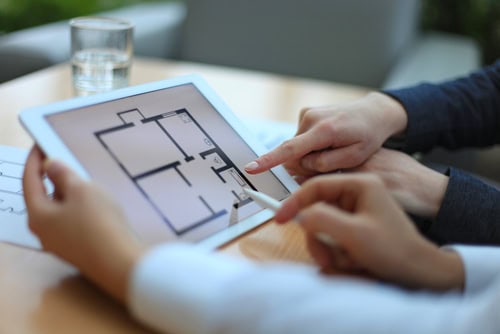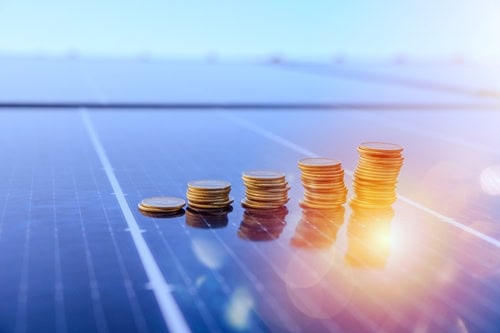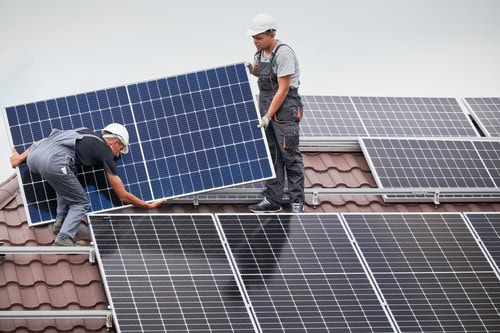
How Long Can Solar Panels Last in Singapore?
September 19, 2022
Beginner’s Guide To Going Solar For Your Home
December 24, 2022How Many Solar Panels Do You Need?

How Many Solar Panels Do You Need? Solar system installation is one of the cheapest and cleanest ways to power your home. Using solar panels on your roof will reduce your electricity bills, which means you’ll be saving money while protecting the environment.
Even though you’ll be reducing your dependency on electricity generated by fossil fuels, the overall carbon footprint will decrease as they will create green energy.
Consuming less electricity also means you’ll use less water and produce fewer emissions, which helps improve air quality. Solar panels are a good investment in the long run because they will last for decades without requiring further maintenance.
Factors that determine how many solar panels you’ll need.

1. Weather
Some areas receive more sunlight than others, so it’s best to get a solar energy calculator. This will help you determine the correct number of solar panels for your area and your family’s needs. The more solar panels you have, the more electricity you will be able to generate, even if it’s a cloudy day.
2. Size of Your Home
The size of your home will also determine how many solar panels you should have. A bigger house will require more power than a smaller one, so the number of panels needed to power the house will also increase.
For example, if you have a home that is 1000 square feet and you need a few extra lights, then three to five solar panels are enough. But if your home is 2000 square feet and you have many appliances, more may be needed. You might want to consider installing solar panels with higher wattage if you have a huge house.
3. Usage
The number of people in the household will also influence how many solar panels are needed. A person living alone may need a few meetings, while others with large families may need a lot more.
If your family doesn’t like air-conditioning, they need more sessions than those who always keep their home at an ambient temperature. The number of appliances that you use also plays a role in determining the power needed. You’ll need more panels if you run a few or several devices simultaneously.
4. Type of Solar Panels
Depending on the type you choose, the number should be determined. For example, if you want a flexible panel that can be easily adjusted, then a 10-panel array will satisfy your household needs. If you need more power, then maybe it’s time to look at larger solar arrays with more panels. Each panel type has characteristics that determine how many boards you need.
5. Appliances
Each type of appliance has its requirements for power. Most of them have wattage, meaning that if your appliance is 120 watts, you’ll need a panel with a rating of 120 watts. More appliances convey more power needs, and more meetings are required to provide that power. Some appliances, such as air conditioners, consume much more power than others. You’ll need more panels to generate the necessary energy for them.
How to Choose the Best Solar Panel System

To find the right size and type of solar panel system, you need to consider the size of your roof, daily usage, and appliances. You can choose from different types of solar panels; we have discussed them in detail in other articles. But here are some things that you need to look for when choosing a solar panel system:
1. Wattage
The wattage of the solar panels will determine how much power you can generate. A three- to the five-panel system is sufficient if you only want to power your home. But if you want to use a generator as backup power, you’ll need more panels. The wattage of the panels isn’t just important, but also the number of watts they produce per hour (W per H).
2. Quality
The quality of solar panels can affect the overall performance of your generator. The most popular ones are made from polycrystalline and monocrystalline cells. These two solar panels are relatively cheap and efficient but use more silicon. Lower-quality panels will be suitable if you want more wattage per panel. At the same time, if you want to maximize your energy generation, you should get top-quality panels made with better materials.
3. Efficiency
The efficiency of the solar panel system is also essential. If someone does not consider efficiency, he will end up with a product that doesn’t produce enough power for his household needs. The more efficient your panels are, the more energy you can generate. For example, if you have 40-watt meetings and they produce 5 watts per hour, they will only generate 50% of their maximum power during the day.
4. Maintenance
If you want to save money, then you should consider getting easy maintenance panels. They don’t require much maintenance and stay for many years, depending on where you live. The more expensive solar panels are more efficient, but you’ll also have to spend more on repair and maintenance.
5. Warranty
When choosing solar panels, you need to know their warranty policy. If the panels are covered by a warranty, then you’re protected if they malfunction. But if there is no warranty, then the only option is getting your money back or a replacement. If you don’t have a warranty, then you might need to spend more on servicing your panels.
How Many Solar Panels Do You Need? – Conclusion

Solar panels are essential for energy generation and determine how much power you can generate with your system. When choosing solar panels, there are many factors that you need to consider, such as wattage, efficiency, size, and type of panels. It would be best if you also thought about finding a top-quality product that is easy to maintain and doesn’t increase your electricity bills.




